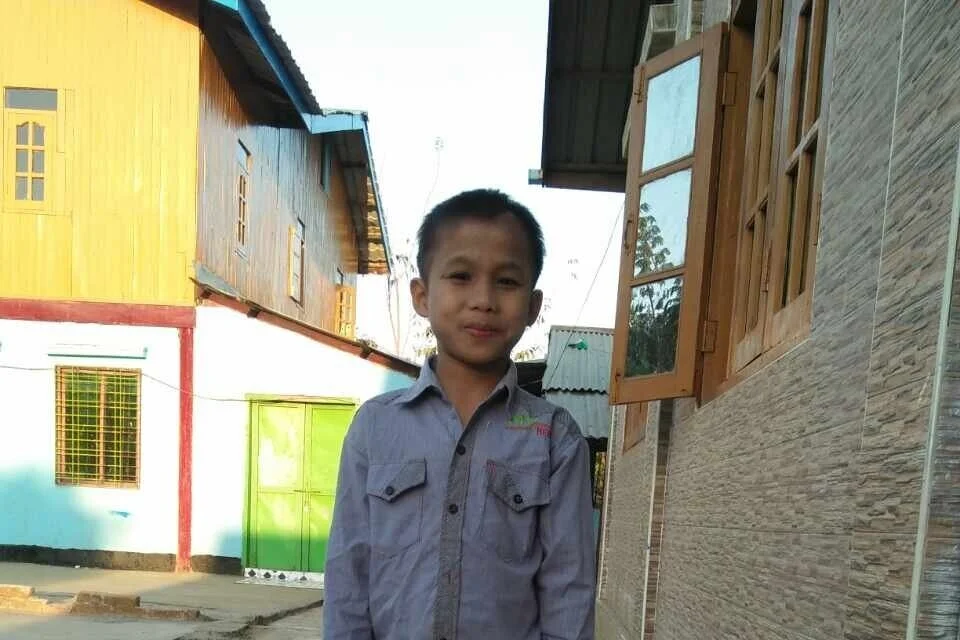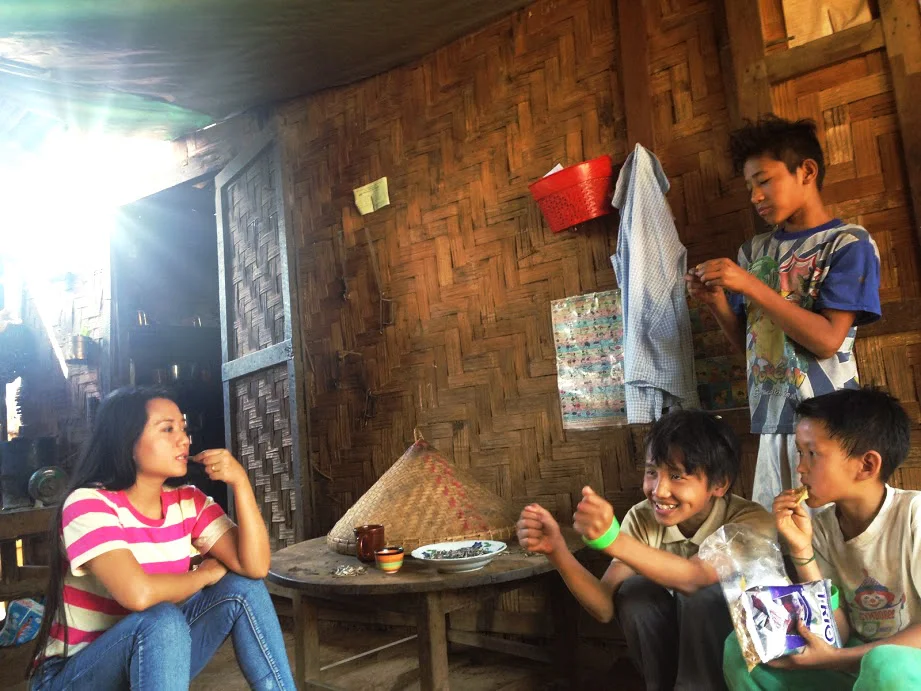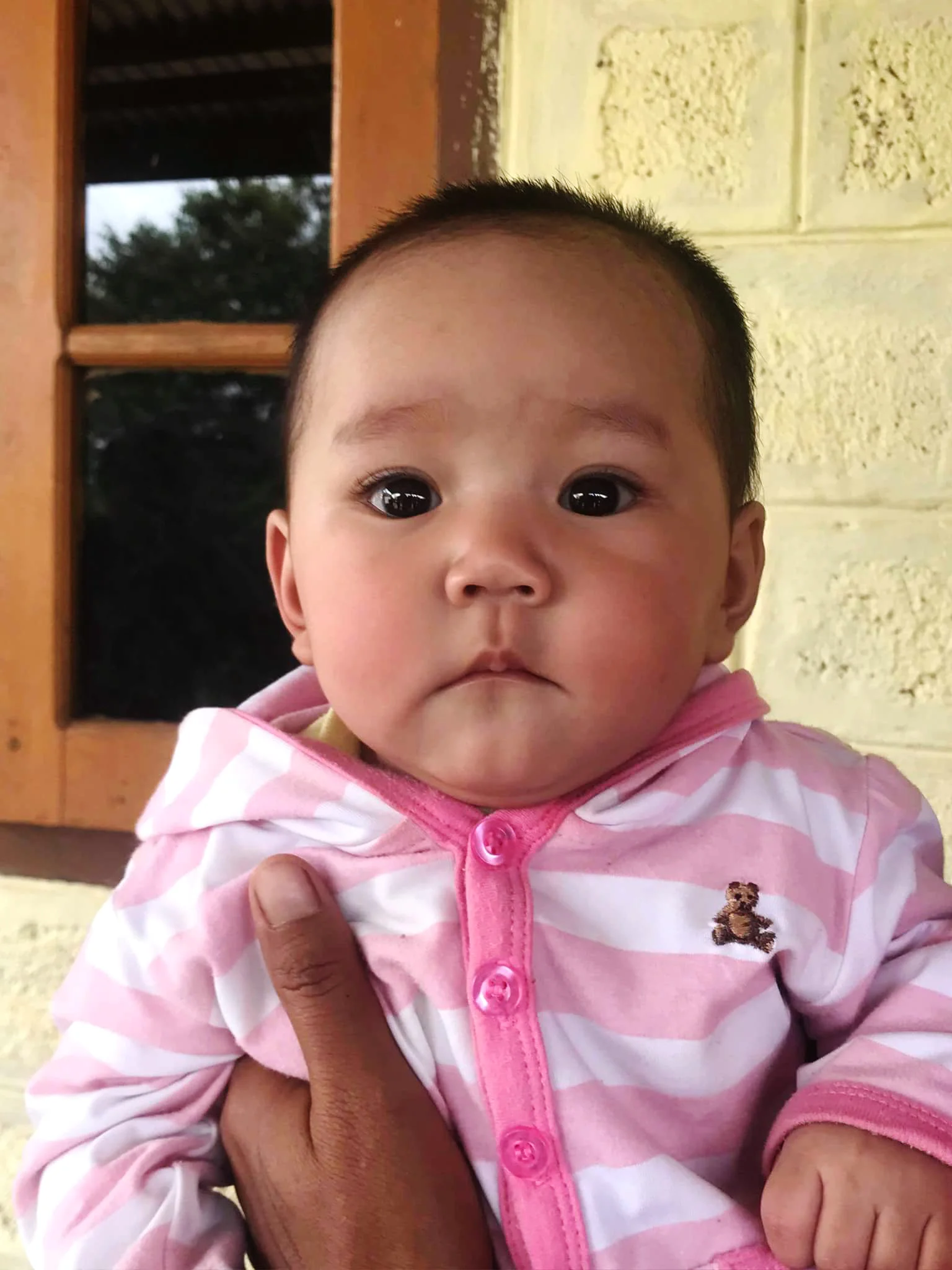Children who are placed in orphanages usually go through many more difficulties than their peers. As well as the emotional challenges associated with being separated from their families, children in institutional care often lack support, and struggle in school….
Social Workers Visit Chin State To Monitor Children And Their Families
Raising Awareness Of Orphanage Issues In Rural Myanmar
Children in Myanmar Orphanages Face Bullying
A Baby Named Cherry: Reintegrating Children with Their Families
A Baby Named Cherry: Institutional Care Negatively Effects Child Development
A Baby Named Cherry: Working Alongside Families as a Social Worker in Myanmar
Part 2 of 4: If you missed the first part of Cherry’s story please read it here.
The role of social worker’s in Myanmar
After her stay in hospital Cherry was allowed to return back into the care of the orphanage, despite assurances from the authorities that alternative care would be found. The orphanage director promised to feed her adequate formula and take better care of her. While this was satisfactory as a temporary solution for Cherry, we knew that there had to be a safer long-term solution for the little girl, so we began to trace her biological family to see if reunification would be possible.
The Search for Cherry’s Family
From left to right: Cherry’s Mother, Grandmother, and social worker
Because Cherry’s birth was not registered, a birth certificate had been obtained by the orphanage director outside of official channels, showing falsified information about the identity of her birth parents, and also her ethnicity. Our social workers were able to obtain the information they needed from the clinic where she was born to begin their search - most importantly, the village her family came from. We were also told that the family practised traditional medicine. It wasn’t much to go on, but it was a start!
As we could not just arrive at the village without a reason, due to the local’s suspicion of strangers - especially those who ask questions - we decided to get help. We met with a man called U Zay, who operated a small clinic in the town, serving the ethnic group to which Cherry belongs. We explained our program and our desire to try and reunite this baby with her family. We told him what we knew about her family and together we came up with a plan to conduct a survey in the village about traditional medicine, as a way of gaining trust and in the hope of tracing Cherry’s family.
Cherry’s Mother
When our social workers arrived in the village, U Zay introduced us to the village leader, are we were able to ask him about those who practiced traditional medicine. He told us that there were four people in the village, so plans were made to meet with each of them. We spent the next trip to the village visiting all of the traditional medicine practitioners in the area, and much to our disappointment, none of these turned out to be Cherry’s family. We eventually caught a break when we spoke with the village leader’s daughter, who suspected our real intentions and subsequently pointed us in the direction of Cherry’s biological family.
Visits with the Family
Cherry’s mother lived with her parents, and on the day we visited the home, she was unwell and in bed. Her mother was very suspicious about the visit and became unwilling to discuss anything further once the issue of unwanted pregnancies was raised, especially as the neighbours had come in to listen to the conversation. We decided that we needed to take time if we to gain their trust. As U Zay advised, this ethnic group’s attitude and values regarding family dignity took precedence over individual lives, and if we dug too deeply, too soon, the family or someone in the community would know about the situation, leading to the family being stigmatized.
Cherry’s Mother with our social worker
During subsequent visits, the social workers had a better chance to introduce themselves and describe what our program does. They explained that children are sent to orphanages for many reasons as well as unwanted pregnancies, and shared the many disadvantages of living in a children’s home, and how growing up outside of a family has a negative effect on children.
Families often consider placing unwanted babies in institutional care and see it as a good option, however they are usually completely unaware that they are placing their children into a harmful situation. Cherry’s grandmother was shocked at hearing this information, as it is generally not the practice of this group to send children to orphanages in any event. The only reason they did in this case was because the clinic they went to offered it as a solution to their problem.
Over the next two weeks we will be sharing the rest of Cherry’s story, stay tuned!
A Baby Named Cherry: Single Mothers Face Stigma in Myanmar
How Family Breakdown In Myanmar Causes Children To Be Placed in Orphanages
The Impact Of Orphanage Trafficking On One Myanmar Family
Blessing at home with her Mother and sisters
Blessing’s Story
At six years old, Blessing was the eldest of three daughters. She came from a remote village in Layshi township, which is completely surrounded by beautiful mountains. There is a reasonable level of education available in the village (this year Sagaing Division had a higher Grade 10 pass rate than the national average), and children there are able to attend both primary and secondary school. Despite this, parents hold a deep-rooted belief that schools in the larger cities are better. Because of this, children are often sent away from their families to live in either Buddhist monasteries or Christian orphanages. It is common for one child from each family to be sent away, and Blessing was one of these children.
One day, a man visited Blessing’s village to recruit children to be sent to orphanages in Yangon (read more about orphanage trafficking). Many families are seduced by the promise of a good education with free board and lodging, and give up their children hoping that it will lead to them having a better life. In most cases the opposite is true. The man who visited Blessing’s village collected ten children that day, as well as Blessing. Blessing was separated from her parents and two younger sisters. As she left, her father gave her some new clothes. Both he and Blessing were optimistic about what her new life would be like in Yangon.
Blessing with her youngest sister
When Blessing was admitted to the orphanage, she struggled to transition to her new life, and began to realise that it was harder to be away from her community than she thought it would be. She missed the food from her home, and her family, and she was forced to repeat a year in school as no one had arranged a school transfer certificate for her. Two years went by, and Blessing had almost completely forgotten her ethnic language.
Kinnected social workers met Blessing as they came to work alongside the orphanage she had been placed in. They took Blessing back during the summer holidays to visit her family, and conducted seminars in her village to bring awareness about the disadvantages of living in orphanages and the effects such a life would have on child development. Blessing’s mother began to worry about her daughter. She said, “If my daughter gets sick, who is going to care for her? Who is going to make sure my daughter is under her blanket at night?” As a result of these seminars, Blessing’s mother decided that her daughter would remain at home.
Blessing in her school uniform
Blessing has been back permanently with her family for over a year. She is happy to be home, and now attends school in the village. She helps her mother with chores and in taking care of her younger sisters. She has regained her ability to speak her ethnic language fluently and is very sociable, having made friends in the community! Kinnected Myanmar is currently providing school support for Blessing and is continuing to monitor her progress for the time being.
Support given to orphanages from well-meaning people has created an orphanage ‘industry’ that exploits local communities and families in Myanmar. The best way to help prevent families like Blessing’s from being taken advantage of by child recruiters is to advocate for family care, and dissuade others from supporting residential institutions. Children belong in families, where they can receive love and support throughout their lives. We all have a role to play in preventing family separation.
Blessing with her sisters and friend



















